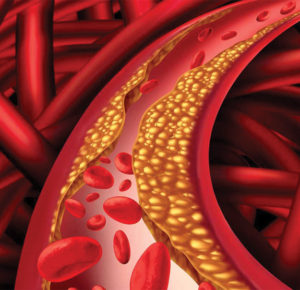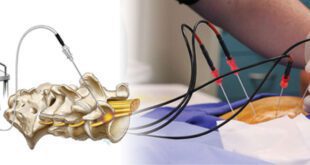 What if high cholesterol was an inherited condition? What would your treatment options be and what would be the best way to lower your cholesterol? Many healthcare providers are beginning to see that cholesterol has a lot to do with genetics and there is debatable information on the proper way to treat it.
What if high cholesterol was an inherited condition? What would your treatment options be and what would be the best way to lower your cholesterol? Many healthcare providers are beginning to see that cholesterol has a lot to do with genetics and there is debatable information on the proper way to treat it.
What is Cholesterol?
Cholesterol is a natural substance that the body produces through the liver. It’s waxy and circulates through the bloodstream, feeding the heart and brain. But when cholesterol is derived from foods like saturated fats and trans fats, the body overproduces LDL, which is the “bad” cholesterol.
HDL is the “good” cholesterol our bodies crave. Without HDL, our brains would not function properly, and we would suffer from other bodily disorders, like heart attacks and strokes. HDL helps to remove the bad cholesterol (LDL) from the body. High levels of LDL may also adversely affect overall health by causing atherosclerosis (plaque in the arteries), cardiovascular disease and other disorders.
Cholesterol Numbers
Your total cholesterol is made up of both LDL and HDL numbers. Your family doctor may order tests in order to check your numbers. The healthiest combination of both types of cholesterol measures HDL, good cholesterol,) around 40, and LDL, bad cholesterol,) around 100.
Risk Factors
Cholesterol, along with triglycerides in the blood, can form atherosclerosis, which as previously mentioned is the plaque that builds up in the arteries. Excessive plaque can increase the chances of a coronary heart attack, heart disease, stroke and other related issues. Triglycerides are the fat that is stored in the bloodstream from the excess fat in our diets. Triglycerides combine with the high LDL level and create harmful plaque build-up. Family history may also play a larger role in your cholesterol numbers than previously believed.
Diet & Exercise
Because high levels of LDL and triglycerides are both associated with food intake and the body’s inability to burn fat, adopting healthier habits can help lower cholesterol naturally.
• Eat a healthy diet
• Quit smoking (contributes to atherosclerosis)
• Start a regular exercise program
• Cut back on alcohol and processed foods
Incorporate Healthy Foods and Nutrients in Your Diet
A significant contributor to successfully lowering LDL is the addition of soluble fiber, omega-3 fatty acids, mono-saturated fatty acids (MUFAs), powerful antioxidants and lutein, to your diet. However, in order to see the benefit of ultimately lowering bad cholesterol, an overall healthy diet must be maintained. This includes decreasing, and in some cases, completely eliminating processed foods from your diet. Cholesterol lowering foods can drop your bad cholesterol levels by 5-10% within a few weeks; your cardiologist can speak with you about a personalized dietary plan.
Medications
The most common cholesterol lowering drugs are statins. In recent years there have been other medication developments that may help to lower your total cholesterol levels. However, there is still concern over the medications effect on the overall wellbeing of the body and brain. Your treatment options could be different if your high lipid count is due to heredity.
Do you Want to Know if Your High Cholesterol is Genetic?
Genexe Health is a progressive genetic testing organization. Their mission is to ensure everyone has affordable access to Genetic Screening services. Whether young or old, rich, poor or somewhere in between, Genexe Health believes that Genetic Screening should be accessible to everyone, and they are determined to make that happen!
Genexe Health’s partner laboratories’ methods and testing procedures are based upon scientific facts and values through which extensive research and data analysis are collected and measured. Such testing procedures set their partner laboratories apart from other less meticulous laboratories.
Genexe Health’s partner laboratories are committed to adhering to the highest analytical standards in the industry, with rapid turnaround times, allowing for prompt informed decisions about treatment.
Instead of being reactive to a late-stage diagnosis, take the step into the future of medicine. Get genetic DNA testing—It could save your life.
Please call (727) 373-8210 to speak with Intake Specialist, Jessica Azarelo at Genexe Health to schedule your screening today. To find out more, please visit genexe.com.
www.genexe.com
Contact intake specialist
Jessica Azarelo
727-373-8210
Check Also
Breaking Through the Pain: How the Stealth Laser is Revolutionizing Nerve Pain Treatment
Nerve pain, or neuropathic pain, is one of the most challenging conditions to treat in …
 Central Florida Health and Wellness Magazine Health and Wellness Articles of the Villages
Central Florida Health and Wellness Magazine Health and Wellness Articles of the Villages


